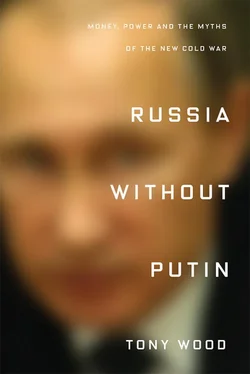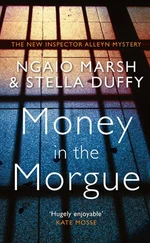Amid the steady worsening of relations between Russia and the West in recent years, Putin has increasingly been depicted in the Western media as their countries’ sworn enemy, steadfastly opposed to liberal democracy and bent on undermining it from without. But it’s worth recalling that for most of the time he has been in power, the West – and in particular Europe – has been the lodestar of Russia’s foreign-policy thinking. To begin with, Putin seemed to represent a return to the ‘Westernizing’ tendency abandoned by Primakov. Shortly before assuming the presidency for the first time in 2000, Putin told David Frost he sought ‘more profound’ integration with NATO, and ‘would not rule out’ Russian membership. {29} 29 Conradi, Who Lost Russia? , p. 123.
Around the same time, in the biographical interviews that made up First Person , he described Russians as ‘a part of the Western European culture. No matter where our people live, in the far East or in the south, we are Europeans.’ {30} 30 Putin et al., First Person , p. 169.
Putin’s points of reference were European even when they weren’t at all flattering: at the end of 1999, he said that it would take fifteen years of rapid growth for Russia to draw level with Portugal’s current per capita GDP. {31} 31 Vladimir Putin, ‘Rossii na rubezhe tysacheletii’, Nezavisimaia gazeta , 30 December 1999.
(Russia reached that milestone in 2011; but by then Portugal was further ahead, and even amid the deep recession sparked by the eurozone crisis, its GDP per capita was still more than one and a half times that of Russia.) At the start of the twenty-first century, then, the Kremlin still envisaged a future of co-operation and ultimate economic convergence with the West. The sharp disagreements over Kosovo in 1999 were, for the time being, seen as a passing anomaly rather than the basis for a widening breach.
The 11 September attacks prompted a shift in Russia’s policy stance. Putin had insistently framed his war on Chechnya, launched in 1999, as part of a wider struggle against ‘Islamic extremism’. {32} 32 I have described this in greater detail in Chechnya: The Case for Independence , London and New York 2007.
In the aftermath of the Twin Towers’ destruction, he saw the potential for an alliance with the Bush administration against ‘terrorism’, opening Russian airspace and encouraging Central Asian states to help with the assault on Afghanistan. These were startling geopolitical concessions, and they were applauded by Russia’s liberals, who at the time called for Russia to line up with the West in a joint struggle against ‘barbarism’. Grigory Yavlinsky and Boris Nemtsov backed the assault on Afghanistan, and the deputy leader of the Union of Right Forces’ parliamentary delegation asserted that ‘Russia must participate in the action of retribution’. {33} 33 Mary Buckley and Rick Fawn, eds, Global Responses to Terrorism: 9/11, Afghanistan and Beyond , London and New York 2003, pp. 227–8.
Yet the Kremlin’s hopes for a durable ‘anti-terrorist’ consensus came to nothing, and the co-operation between Washington and Moscow was short-lived. The former’s unilateral withdrawal from the Anti-Ballistic Missile Treaty in June 2002 was an early sign that Russian overtures would not be reciprocated. The disparity built into US–Russia relations, meanwhile, became even more glaring now that the US was committed to deploying its power still more aggressively, as the ‘War on Terror’ morphed rapidly into a crusade to remake the Middle East. Russia joined France and Germany in voicing reservations about the US assault on Iraq. But Russia’s concerns didn’t stem from any attachment to international law or sympathy for Iraqi civilians – it had, after all, recently levelled what remained of Grozny, burying thousands of its own citizens under the rubble. It was, rather, alarmed at the US’s unconstrained use of military force around the globe, and its deployment of that force to impose regime change.
The question of regime change became especially significant for the Kremlin in the mid-2000s. Though it had successfully neutralized opposition within the country, the ‘imitation democratic’ regime nonetheless remained vulnerable to pressure or even overthrow from the outside. A year after the invasion of Iraq, the accession of seven more countries to NATO brought the alliance directly to Russia’s border. At the end of 2004, protests over rigged elections in Ukraine sparked the ‘Orange Revolution’, blocking Moscow’s preferred candidate, Viktor Yanukovych, and ultimately bringing his pro-Western opponent, Viktor Yushchenko, to power instead. Greeted in the West as a democratic flowering, but seen in the Kremlin as the product of Western machinations, the Ukraine crisis of 2004–05 was crucially different from the previous ‘Colour Revolutions’ in Serbia (2000) and Georgia (2003). There was much more at stake for Russia than in those previous cases: the Kremlin had poured a great deal of money and effort into securing the presidency for Yanukovych, and the geopolitical outcomes of his defeat were far more serious – potentially opening the way for NATO to emplace itself along almost all of Russia’s western borders.
In the case of Ukraine, moreover, external strategic issues were intertwined with internal political questions. The ‘Orange Revolution’ represented a frontal challenge to Russia’s own ‘imitation democratic’ regime, raising the possibility that popular energies – till now excluded from the business of government across the post-Soviet space – might surge back once more, as in 1989–91, to threaten the existing system. The examples of Georgia and Ukraine proved contagious: Kyrgyzstan’s ‘Tulip Revolution’ followed in early 2005, while comparable though unsuccessful movements emerged elsewhere (Azerbaijan, Belarus, Mongolia). From 2004–05 onward, the defence of what the Kremlin saw as Russia’s interests abroad became inseparable from the impulse for self-preservation at home, tying Russian foreign policy ever more closely to concerns over domestic order.
Yet even amid growing tensions over Iraq, NATO expansion and Ukraine, Moscow’s foreign-policy stance was still founded on a sense of commonalities with the West. In an April 2005 speech to both houses of the Russian parliament, Putin said that ‘Russia was, is and will, of course, be a major European power’, and spoke of shared ‘ideals of freedom, human rights, justice and democracy’. {34} 34 ‘Annual Address to the Federal Assembly of the Russian Federation’, 25 April 2005; English translation at en.kremlin.ru.
At the same time, there was a new insistence on the country’s capacity to determine its own future. In the same speech Putin asserted that, ‘as a sovereign nation, Russia can and will decide for itself the timeframe and conditions for its progress’ along the road to ‘freedom and democracy’. In effect, Putin had combined the ‘Westernizing’ and ‘statist’ lines of Russian foreign-policy thinking.
But this synthesis was inherently unstable, expressing a desire for alliance with the West while asserting independence from it. The contradiction was apparent in Putin’s February 2007 address to the Munich Security Conference, where he laid out a litany of complaints about Western behaviour, focusing especially on Iraq and NATO expansion but embracing a great many other themes, from nuclear proliferation to the WTO. Though this was widely interpreted by the mainstream media as an outburst of angry anti-Western sentiment, it makes more sense to see it as a fit of frustration – which had built up precisely because Russia’s attempts to forge a pragmatic alliance with the West, and to develop closer trade and economic ties, kept failing.
Читать дальше












